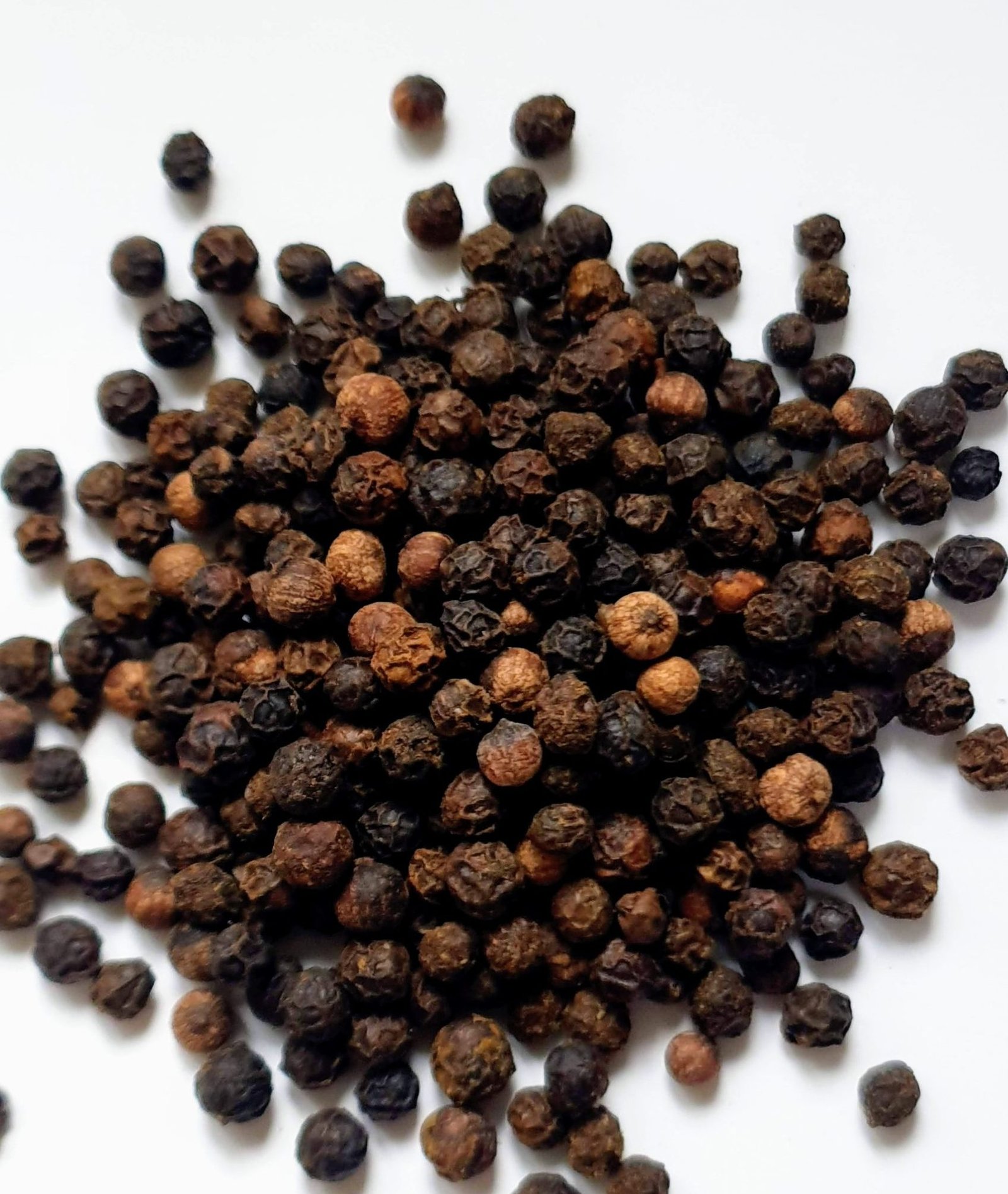Black pepper is one of the most commonly used spices around the world. It is derived from the Piper nigrum plant fruit and is native to India. Apart from its culinary uses, It also has medicinal properties.
Uses: This is applied as a seasoning in various dishes, including meats, vegetables, and soups. It adds flavor and heat to food. In addition, it is also utilized in traditional medicines and remedies.
Black pepper benefits:
- Digestive Health: Black pepper stimulates digestive enzymes, aiding digestion and relieving constipation.
- Anti-inflammatory Properties: It contains a compound called piperine, which has anti-inflammatory properties. This can help reduce inflammation and ease pain.
- Boosts Metabolism: It increases metabolism, which leads to increased calorie burn and weight loss.
- Respiratory Health: This is often used in traditional remedies to treat respiratory conditions like asthma and bronchitis. It is believed to relieve congestion and clear mucus from the respiratory tract

Nutritional Elements: Black pepper is a rich source of vitamins and minerals. Some of the most prominent nutritional elements found in black pepper include:
- Vitamin K: 18% of the recommended daily intake
- Iron: 14% of the recommended daily intake
- Calcium: 3% of the recommended daily intake
- Potassium: 3% of the recommended daily intake
Facts:
- It is the most traded spice in the world.
- Piperine, the compound found in it is the main reasons for its spicy taste.
- It has been used in traditional medicine for centuries to treat a range of ailments.
- This is also used in perfumes and scented oils.
In conclusion, It is an incredibly versatile spice that offers health benefits. Whether used in cooking or as a traditional remedy, This is a valuable addition to any kitchen or medicine cabinet. So, the next time you sprinkle black pepper on your food, remember its numerous benefits beyond just adding flavor to your dish.
For more info: Indian Spices
Follow us on: Ebenus-exim

